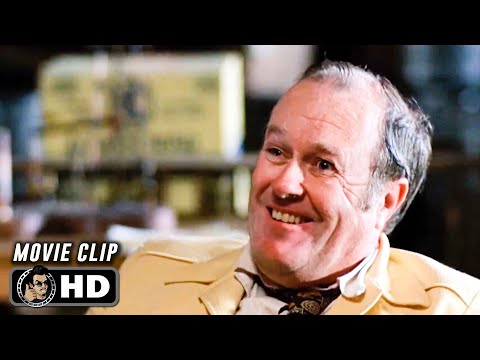Joel and Ethan Coen’s “Blood Simple” launched their directorial careers, established their dedication to no-nonsense film noir and marked an enormously accomplished film debut.
In the decade that is often generalized as the height of empty Hollywood filmmaking and the death of 1970s independent auteurism, not enough credit is given to the fiery artists who grabbed hold of the decade:
- John Sayles
- David Lynch
- Spike Lee
- Oliver Stone
- A rejuvenated Martin Scorsese
- The Coens
The output from the aforementioned listed directors was always unpredictable, personal and impossible to ignore.

With 1984’s “Blood Simple,” the blood-stained poetry and guilt-ridden anxiety of adult film noir, which seemed to have hit a peak with “The Postman Always Rings Twice” (1981) was really just getting revved up here. The Coens weren’t simply setting the table for the likes of “Fatal Attraction” (1987) and “L.A. Confidential” (1997) but were fine tuning their ability to craft playful, intelligent, fiendishly funny, truly original work that was an extension of their passions and personalities.
In other words, the glamourized 1970s era of directorial authorship and indie dominance never went away, it just took a nap. Works like “Blood Simple” are a reminder of how exciting a film can be from a newcomer that lives cinema.
It begins with a shot from the backseat of a car, driving through a rainy night. We listen to the characters revealed by the backs of their heads and the yearning in their dialogue.
We meet Ray (John Getz), who works in a Texas bar and is having an affair with Abby (Frances McDormand), who is married to Julien (Dan Hedaya), the owner of the bar. Julien hires a vile, bottom-the-barrel-scraping private detective named Loren Visser (M. Emmett Walsh, in a performance guaranteed to make your skin crawl) to murder Abby and Ray.
That’s just the set-up.

We’re deep in film noir country here, as the unreliable protagonist (Ray) and his femme fatale lover (Abby) have enraged Julien to the point where his life would be so much better if this one little murder would erase his problems. The environment is lived in and scuzzy, with the long stretch of roads every bit as menacing and endless as you’d find in a David Lynch film.
Rain, ceiling fans, swigs of liquor, revolvers, close-up murders and wicked twists of fate drive the story. What could have seemed like a variant of “The Postman Always Rings Twice” is instead infused by the creative energy and exciting cinematic choices made by the Coens, who turn their small but rock-steady film debut into a genre master class.
RELATED: HOW ‘MILLER’S CROSSING’ CHANGED EVERYTHING FOR COEN BROTHERS
McDormand reveals the intriguing layers and touching vulnerability that would mark her later performances, while Getz, as he would be in “The Fly” two years later, is compelling without ever being likable.
Hedaya makes anything he plays colorful and darkly funny, while Walsh is so vivid and unsettling, it’s hard to believe the Coens found an actor and didn’t just recruit the real deal.
Joel and Ethan Coen reflect on working with M. Emmet Walsh.
–from the Criterion release of Blood Simple. pic.twitter.com/fDL2KYs8zO
— Will McCrabb (@mccrabb_will) March 21, 2024
Barry Sonnenfeld’s cinematography is wizard-like. I don’t normally refer to the Director of Photography as “wizards,” but there’s no better word for the man who gave everything from this, “Throw Momma from the Train” (1987), “Misery” (1990) and the Coens’ subsequent “Raising Arizona” (1987) and “Miller’s Crossing” (1990) such precise, quirky, and breathtakingly dynamic distinction.
Sonnenfeld later became a successful director. Don’t forget the scenes of Thing “running” across the floor in “The Addams Family” (1991) or the hip mood he gave “Get Shorty” (1995).
Sonnenfeld was a great collaborator for the Coen brothers. Likewise, the tender and eerie music by Carter Burwell, whose score for “Psycho III” two years later sounds like a harsher reprise of his “Blood Simple” theme.
The best scenes in “Blood Simple” are juggernauts – from the violent confrontation on the front lawn (with a swooping camera angle right out of “The Evil Dead”) to failed highway burial in a vast field, there’s a devious inventiveness to the film’s ’80s take on film noir conventions.
RELATED: COEN’S ‘HUDSUCKER PROXY’ – FROM FLOP TO CULT CLASSIC
Then there’s the final scene, in which Abby must face Visser alone: the visuals of the threat on the other side of the wall and how bullet holes and a well-placed blade play into it, make for an astonishing finale.
The Coens made a stunningly accomplished calling card with their first film. Forty years later, “Blood Simple” is just one masterpiece of many from Joel and Ethan Coen.
There aren’t many missteps to note here, but I will say that it’s puzzling how Meurice the bartender (Samm-Art Williams) gets a big introduction and seems to be an important figure in the plot but fades out of view by the end of the second act.
My only complaint with the repeated use of The Four Tops 1965 hit “It’s Not the Same Old Song” is that I now only associate it with this movie. Good luck getting it out of your head, or, the next time you hear it, try not to think of anything other than “Blood Simple.”
The post ‘Blood Simple’ – Blood-Stained Poetry That Left a Mark appeared first on Hollywood in Toto.
0 Comments